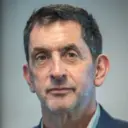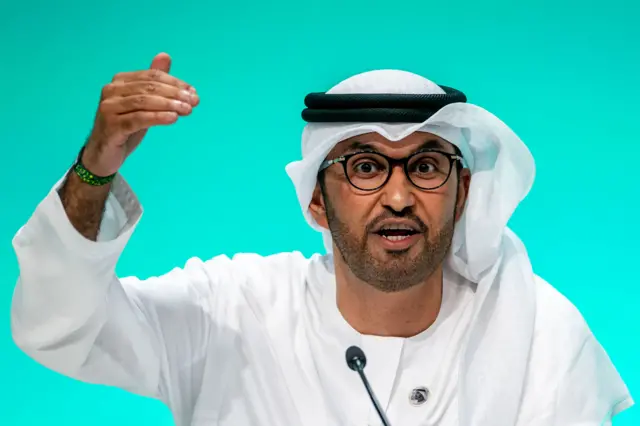'We will not sign our death certificate': Hard-hit nations furious about draft dealpublished at 15:13 GMT 11 December 2023
 Georgina Rannard
Georgina Rannard
Climate reporter at COP28 in Dubai
We've been getting reaction from countries on the frontline of climate change - places where sea level rises are already destroying homes and storms are killing people.
In a press conference the Alliance of Small Island States (Aosis) said "we will not sign our death certificate".
"We cannot sign onto text that does not have strong commitments on phasing out fossil fuels."
It said that the commitment to limit global temperature rise to 1.5C above pre-industrial levels is the red line their nations will not cross.
"Any text that compromises 1.5C will be rejected," it said.



